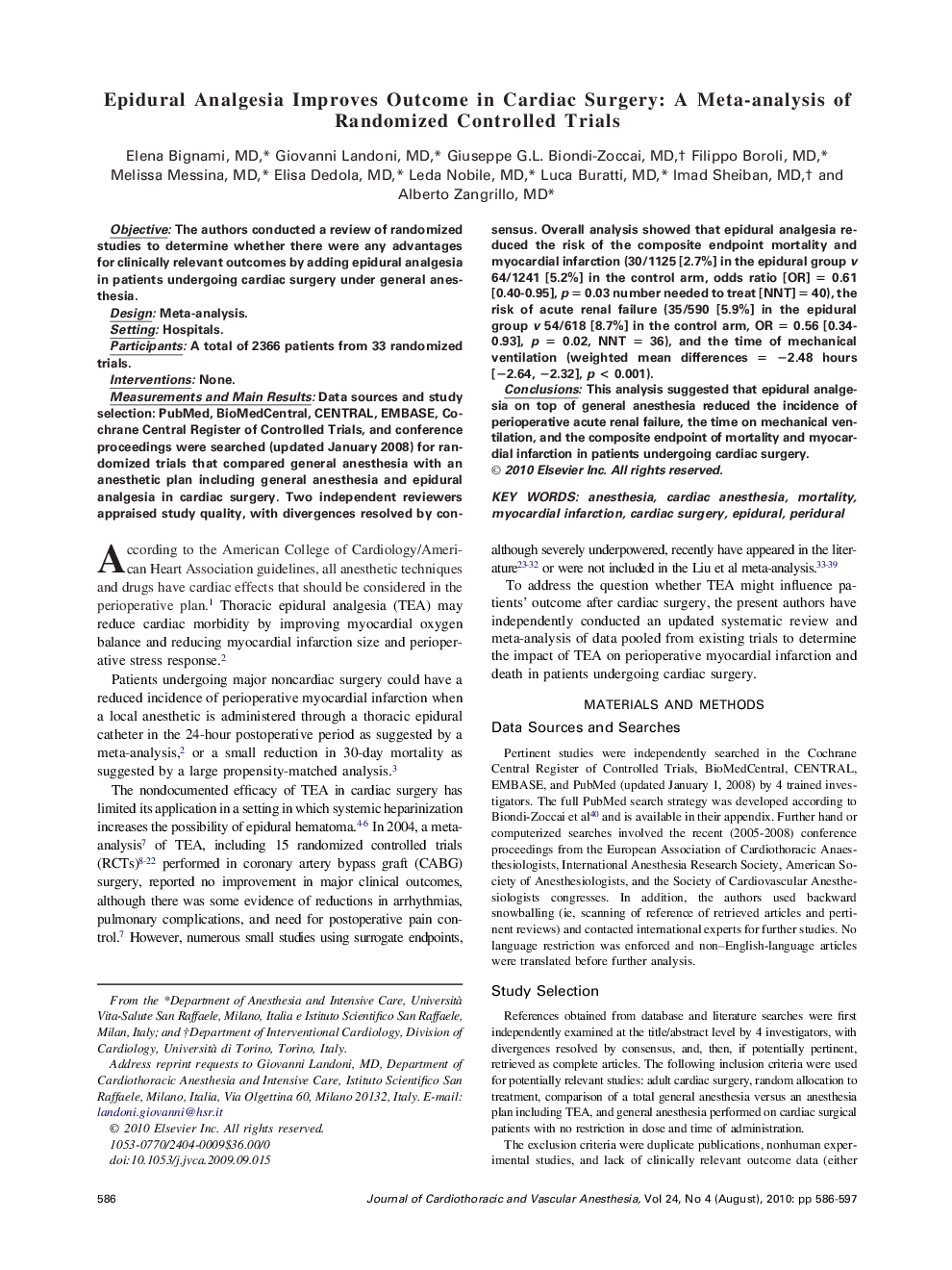| Article ID | Journal | Published Year | Pages | File Type |
|---|---|---|---|---|
| 2760195 | Journal of Cardiothoracic and Vascular Anesthesia | 2010 | 12 Pages |
ObjectiveThe authors conducted a review of randomized studies to determine whether there were any advantages for clinically relevant outcomes by adding epidural analgesia in patients undergoing cardiac surgery under general anesthesia.DesignMeta-analysis.SettingHospitals.ParticipantsA total of 2366 patients from 33 randomized trials.InterventionsNone.Measurements and Main ResultsData sources and study selection: PubMed, BioMedCentral, CENTRAL, EMBASE, Cochrane Central Register of Controlled Trials, and conference proceedings were searched (updated January 2008) for randomized trials that compared general anesthesia with an anesthetic plan including general anesthesia and epidural analgesia in cardiac surgery. Two independent reviewers appraised study quality, with divergences resolved by consensus. Overall analysis showed that epidural analgesia reduced the risk of the composite endpoint mortality and myocardial infarction (30/1125 [2.7%] in the epidural group v 64/1241 [5.2%] in the control arm, odds ratio [OR] = 0.61 [0.40-0.95], p = 0.03 number needed to treat [NNT] = 40), the risk of acute renal failure (35/590 [5.9%] in the epidural group v 54/618 [8.7%] in the control arm, OR = 0.56 [0.34-0.93], p = 0.02, NNT = 36), and the time of mechanical ventilation (weighted mean differences = −2.48 hours [−2.64, −2.32], p < 0.001).ConclusionsThis analysis suggested that epidural analgesia on top of general anesthesia reduced the incidence of perioperative acute renal failure, the time on mechanical ventilation, and the composite endpoint of mortality and myocardial infarction in patients undergoing cardiac surgery.
